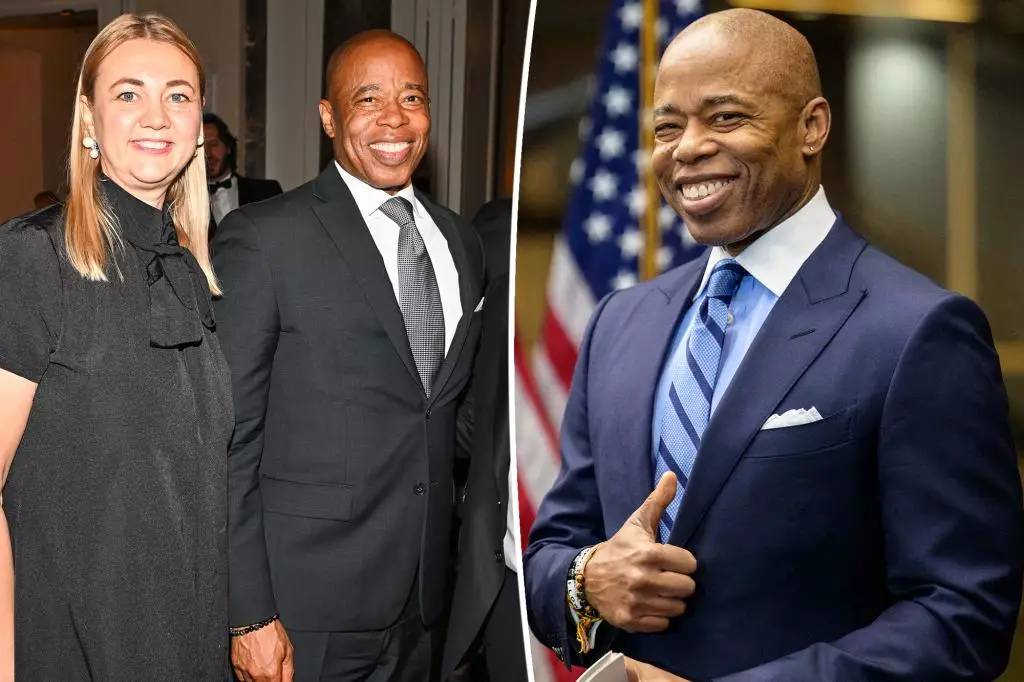In the bustling world of high-profile events, where the glamour of the Met Gala reigns supreme, the expectations set by those connected to political power must align with reality. The recent debacle involving New York City Mayor Eric Adams’ supposed afterparty, dubbed the “Mayor Gala,” not only fell flat before it even set sail but also casts a spotlight on the miscommunications and inflated expectations surrounding celebrity and political engagements. Alisa Roever, a close aide to Adams, sparked excitement when she announced — and later retracted — plans for a lavish gathering at Gracie Mansion, which she claimed would follow the renowned Met Gala on May 5th.
Information Vacuum: A Missed Opportunity
The fallout from Roever’s premature announcement raises serious questions about the transparency and flow of information within the mayor’s office. When inquiries about the purported event were made, Adams’ team expressed bafflement, confirming that no scheduling discussions had occurred. This calls into question not only Roever’s judgment but also the effectiveness of communication within the administration. In an era where every tweet or Instagram post can spark a wildfire of speculation, an event of this caliber demands a higher standard of preparation and clarity.
Interestingly, this isn’t Roever’s first faux pas related to the mayor’s public engagements. In previous instances, such as the canceled appearance at Denise Rich’s Angel Ball, her claims crumbled under scrutiny, leading to frustration among attendees and a tarnished image for the mayor’s office. This kind of miscommunication creates a chain reaction; it erodes trust not just in those directly involved but also in the perception of the administration’s ability to handle the high demands of the public eye.
The Stakes of Political Presence at Social Events
Attending high-profile events like the Met Gala is a tightrope act for politicians. The stakes are exceedingly high — a misstep can lead to severe damage to one’s reputation. With celebrity culture interwoven with political narratives, every appearance or absence is analyzed to the nth degree. The notion that Mayor Adams would appear on the Met Gala red carpet remains uncertain and shrouded in ambiguity. The lack of clarity from the mayor’s office regarding his schedule almost feels emblematic of the current state of political celebrity — filled with glitz but also rife with confusion and misinformation.
As the date approaches, the anticipation of whether Adams will emerge from the shadows onto a stage of champagne and couture looms larger than the actual event itself. It’s telling how, in this era dominated by social media and public perception, very few seem acutely aware that behind every glamorous gala is a web of complex planning and political maneuvering.
Impact of Unmet Expectations
The fallout from unfulfilled promises, especially in the realm of charities and public service, can lead to a cascade of negative repercussions. High-dollar tickets sold for events linked to the mayor, only to be left in limbo, demonstrate a growing discontent among potential supporters and attendees. Whether or not this will significantly influence public perception of Mayor Adams is still up for debate; however, the disarray surrounding his attendance raises critical questions about the effectiveness of his close associates like Roever and the possible disconnect in their understanding of the mayor’s obligations and image management.
In such a vibrant city teeming with events, clarity, and accountability become paramount for those who aspire to integrate their roles in public service with the arts and social functions. The disastrous flubs surrounding the Mayor Gala could serve as a poignant lesson in the necessity of organized and transparent communication within political circles.

